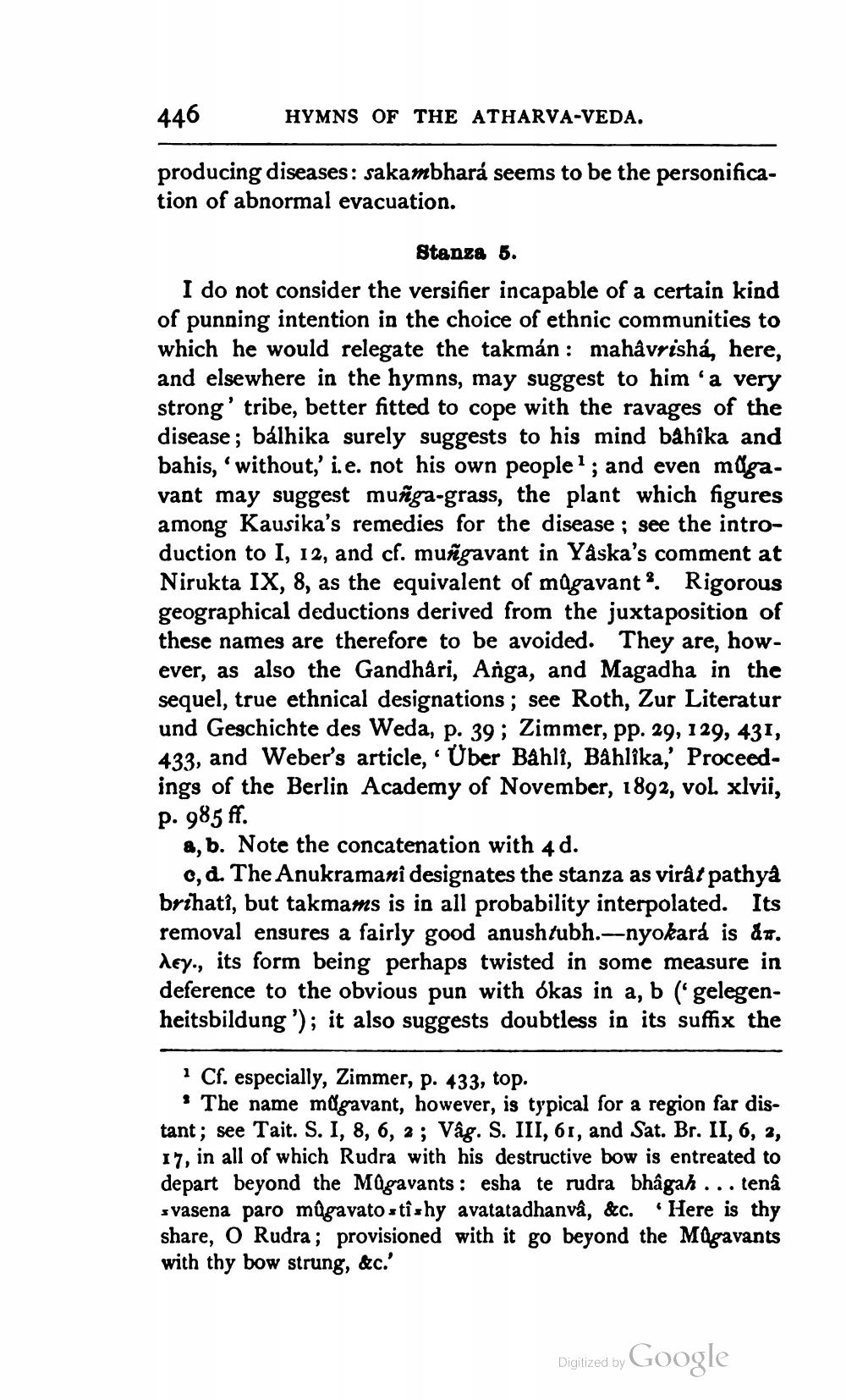________________
446
HYMNS OF THE ATHARVA-VEDA.
producing diseases: sakambhará seems to be the personification of abnormal evacuation.
Stanza 5. I do not consider the versifier incapable of a certain kind of punning intention in the choice of ethnic communities to which he would relegate the takmán: mahâvrishá, here, and elsewhere in the hymns, may suggest to him a very strong' tribe, better fitted to cope with the ravages of the disease; bálhika surely suggests to his mind bâhîka and bahis,'without,' i.e. not his own people?; and even můga. vant may suggest muñga-grass, the plant which figures among Kausika's remedies for the disease ; see the introduction to I, 12, and cf. muñgavant in Yaska's comment at Nirukta IX, 8, as the equivalent of mūgavant". Rigorous geographical deductions derived from the juxtaposition of these names are therefore to be avoided. They are, however, as also the Gandhari, Anga, and Magadha in the sequel, true ethnical designations; see Roth, Zur Literatur und Geschichte des Weda, p. 39; Zimmer, pp. 29, 129, 431, 433, and Weber's article, Über Båhlí, Bůhlîka,' Proceedings of the Berlin Academy of November, 1892, vol. xlvii, p. 985 ff.
a, b. Note the concatenation with 4 d.
0, d. The Anukramani designates the stanza as virât pathyà brihatî, but takmams is in all probability interpolated. Its removal ensures a fairly good anushtubh.-nyokara is ds. dey., its form being perhaps twisted in some measure in deference to the obvious pun with okas in a, b (gelegenheitsbildung '); it also suggests doubtless in its suffix the
1 Cf. especially, Zimmer, p. 433, top.
* The name mågavant, however, is typical for a region far distant; see Tait. S. I, 8, 6, 2; Våg. S. III, 61, and Sat. Br. II, 6, 2, 17, in all of which Rudra with his destructive bow is entreated to depart beyond the MQgavants : esha te rudra bhậgah ... tena svasena paro mūgavato stî shy avatatadhanvâ, &c. Here is thy share, o Rudra; provisioned with it go beyond the Magavants with thy bow strung, &c.'
Digized by Google




